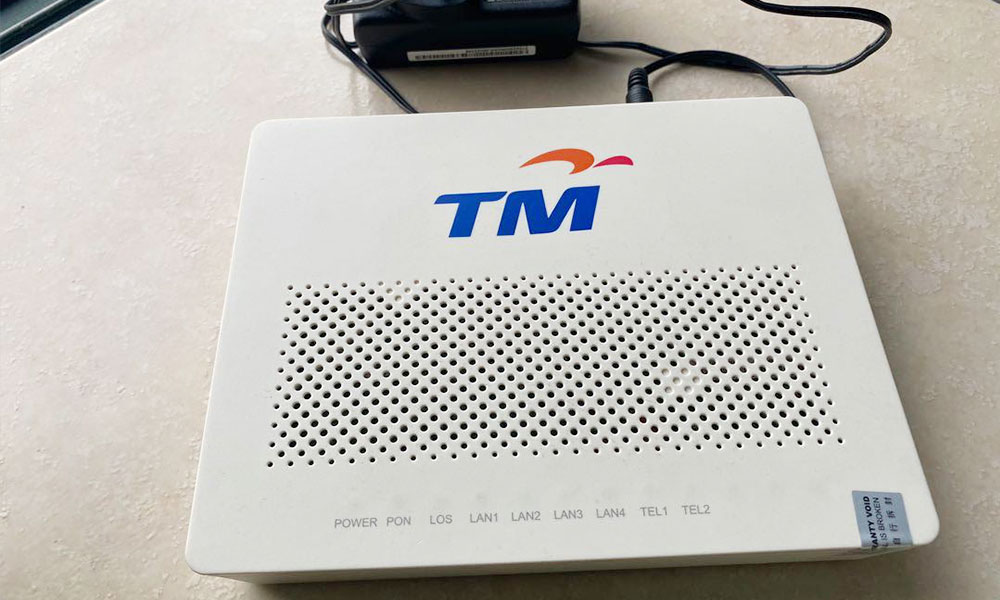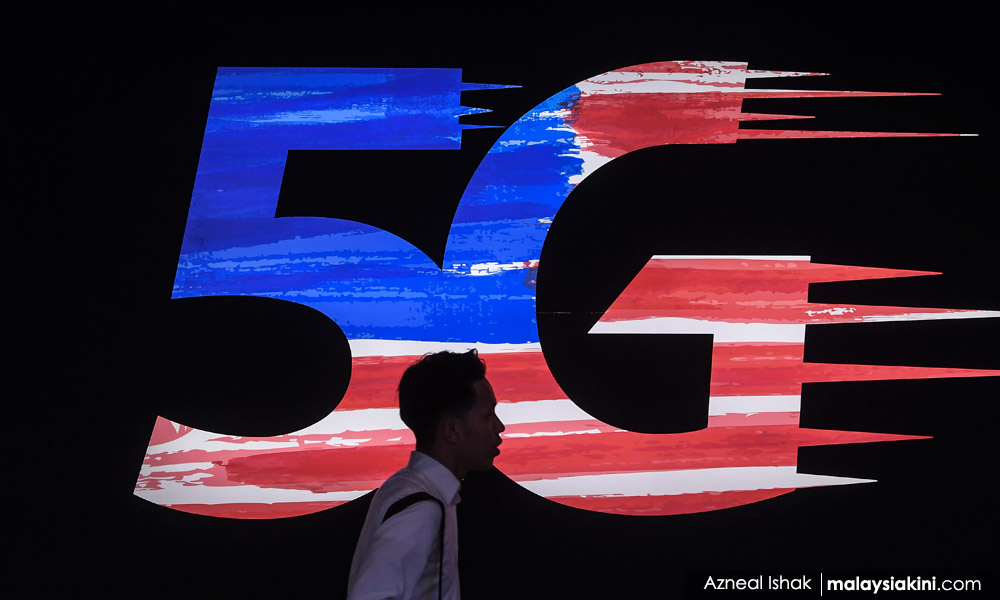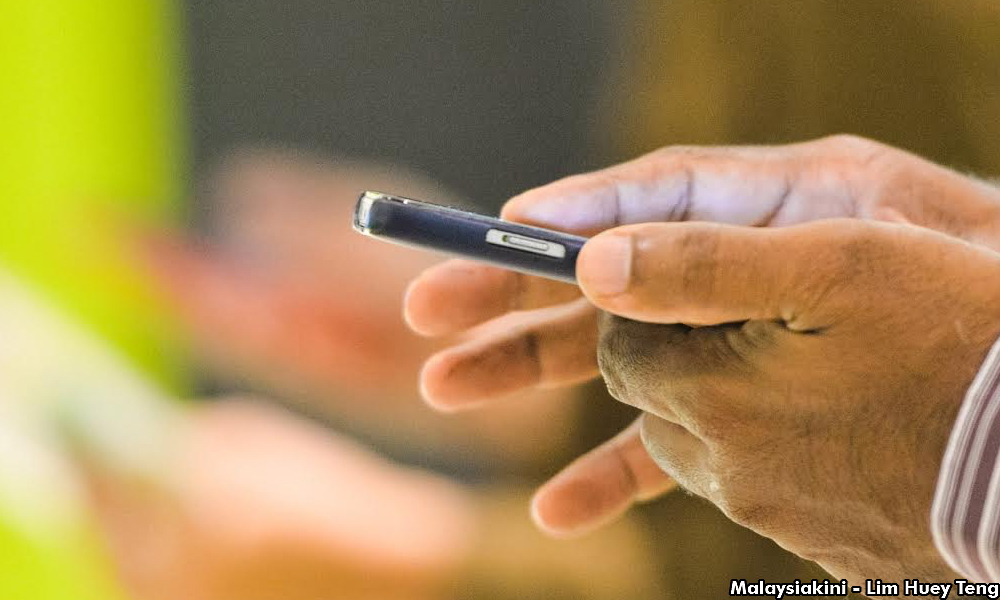I don’t know about you, but I have had many problems with my Maxis services, both mobile and fibre.
A check with friends indicates that this problem is not just restricted to Maxis but is industry-wide, with those using other services providing similar feedback.
The root of the problem is a much larger one.
It relates to how telecommunications services have been handled in this country - from the roll-out of fast-speed fibre to putting telecommunications companies or telcos to greater accountability and actual competition.
I have been a Maxis customer for more than 20 years now - it’s the only postpaid number I have ever had. About a decade ago, I decided to get the new broadband services which were supposed to give superfast home wifi.
I contacted Telekom Malaysia (TM), which had a monopoly on the last-mile connection of high-speed broadband or HSBB to homes.
It is a player in telecommunications and, therefore, should not have been given such a monopoly.

The installer from TM asked me for RM800 for installation when it should have been RM200 max.
I declined and sent him packing after giving him an earful.
I called Maxis - they offered broadband but had to rely on TM for the fibre connectivity. Still, they said no charges for installation and I got the package installed.
Much slower than advertised
Things were okay for a while but the speed was slow, and a few years ago, I upgraded from 300 Mbps to 800 Mbps - the highest available today for my area.
The service from almost the installation day was unsatisfactory, with frequent drops of the so-called 5GHz faster service. The much slower 2.4Ghz backup service barely exceeded 100 Mbps, which meant I was being short-changed by a considerable amount.
Over two years, perhaps I made over a dozen complaints - things deteriorated after a while each time they were fixed. The need to reboot periodically increased, and even that did not help after some repeated attempts.
This was when I suspected Maxis and other telcos could not consistently provide promised service levels because of other more significant problems.
I can only suspect ageing equipment and infrastructure in anticipation of a major upgrade ahead of the long-anticipated 5G roll-out, which is supposed to revolutionise telecommunications - we are still waiting.
Is anybody using any 5G services? I certainly am not.

My latest complaint is over a week old. Maxis said they were monitoring my internet service for three days.
After that, they said the problem was probably the TM modem and arranged for a joint meeting with technicians from both sides.
The TM technician did not turn up. They said they will fix another date - hopefully, TM will turn up this time.
Meanwhile, mobile services have seriously declined overall, with dropped calls, lack of service, and poor quality of calls.
The probable cause is a lack of investment ahead of the 5G roll-out, which will involve significant investment.
Lack of refunds
Our roaming charges on going overseas are probably among the most expensive. We can’t even get a decent rate for Asean countries.
Recently, when I went to Nepal, I came across a Maxis data package for RM99 a month.
Data was all I needed during the 24 days in Nepal instead of roaming, which would cost me RM38X24 or RM912.
Data roaming was the better option, especially since you can make WhatsApp calls using data.
Except that the Maxis data roaming package barely worked in Nepal. I was entitled to 2GB of data usage per day (it said unlimited, but a Maxis customer service person told me on inquiry after returning that if 2GB was used up, my speed will be slower).

During my entire stay in Nepal, I only managed to use less than 900 MB of data against an entitlement of 48 GB.
I had to rely on the sporadic wifi services at the lodges I stayed at to remain in contact with the rest of the world.
I told the Maxis representative I wanted a refund - he offered only 50 percent.
The service was almost non-existent, but they still charged me half the total charge.
I said they should look at my usage to understand the total lack of service. My threats to report them for the ridiculous settlement went unheeded.
My wife also subscribed to the package. She could not be bothered to get a refund - too much trouble for too little.
How many people then would have been cheated through this lack of services?
Can’t Maxis find out if their services work before charging for it and rolling it out?
These should apply to their entire range of services, such as broadband, where the service is abysmal. And can’t they be decent enough to refund when promised services don’t work?
An oligopoly
Telcos are now in an oligopoly, made worse by the Celcom-Digi merger recently, a move that should not have been allowed due to competitiveness reasons.
Based on 2021 Statista figures, Celcom-Digi has the largest market share with 40.3 percent (Digi 21.6 percent and Celcom 18.7 percent), Maxis 27.4 percent, and U Mobile 16 percent.
The big three have a commanding 83.7 percent, with the remaining 16.3 percent held by others.

And now the government seems to be making a mistake by allowing the dominant players to form their own 5G network, which will again raise the issue of pricing control - but that’s another story for another day.
The point is just two companies control two-thirds of the mobile market now, while the top three control 83.7 percent.
Under such oligopolistic conditions, the government, through regulatory authorities such as the Malaysian Communications and Multimedia Commission, needs to regulate the industry very closely.
Not for no reason have the telcos been among the largest companies in terms of value on the Malaysian stock market.
They are in a very lucrative market segment with tens of billions of ringgit in market value and disbursing hundreds of millions of ringgit in dividends yearly.
It is incumbent upon the government to ensure that their charges are reasonable and accurately reflect the services they provide. These should be benchmarked against similar returns in similar countries.
Both our rates for mobile telephony and broadband services are not exactly near the lowest, and we have had a history of making mistakes in rolling out our telephone and communication services.
For a start, the authorities should review existing rates and service levels.
Benchmark them against international levels, set a targeted rate of benchmark return based on their status as a low-risk utility, and work backward to set a decent rate that is fair to the consumer - just about every adult in Malaysia.
Not doing so is to set us back severely in terms of competitive access to one of the most vital communications services. - Mkini
P GUNASEGARAM says our utility regulators have repeatedly let us down when it comes to negotiating decent rates for toll roads, electricity, water, telephony, and airfare refunds, amongst others.
The views expressed here are those of the author/contributor and do not necessarily represent the views of MMKtT.




No comments:
Post a Comment
Note: Only a member of this blog may post a comment.